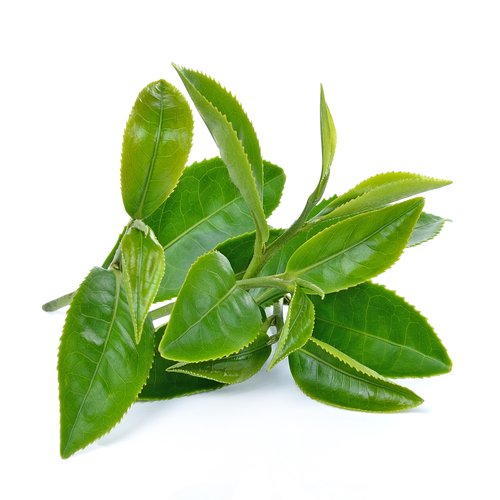Green tea
The active ingredients in green tea are flavonoids, polyphenols, such as catechins, epigallocatechin gallate (EGCG). Rich in vitamin E, Green tea is also found in carotenoids, tocopherol, ascorbic acid (vitamin C), minerals such as chromium, manganese, selenium and zinc, and some phytochemical compounds. The perfect ingredients in a powerful antioxidant are a gift that nature offers us for healthy living.
Green tea, also known as anti-aging; xanthine alkaloids such as theanine, tyrosine and leucine, adenine, dimethylxanthine, theobromine, theophylline and xanthine; carbohydrates such as pectin (also found in fruits), glucose, sucrose and fructose; pigments such as chlorophyll and triterpene saponins. Vitamin A, B complex vitamins (B1 Thiamine hydrochloride (HCl) or thiamine pyrophosphate, B2 Ribose 5-phosphate, B3 Niacinamide, B5 Pantetin, B6 Pyridoxal-5′-phosphate, B9 L-5-MTHF methylpholate, B12 Methylcobalamine, Biotin) Vitamins C and E are also found in green tea. Green tea loaded with antioxidants and nutrients, which are perfect for your body and mind, is a very beneficial plant for the skin as well as for health benefits. Polyphenols are the most important components of green tea. It consists of polyphenols, catechin, gallic acid and derivatives thereof. Flavanols are the most important of these. Iron, zinc, copper and selenium were found in the composition of green tea. Amino acids such as Gamma Amino Butyric Acid and L-Teanine, flavonoids, polysaccharides, fluoride, volatile aroma components and caffeine are other important components.
Polyphenols have the most important share in spreading the consumption of green tea as a healthy drink all over the world. Epigallocatechin-3-gallate polyphenols found in green tea, especially antioxidant properties and have a protective effect on cancer has been done in many scientific studies all over the world. In addition, green tea catechins prevent tumor formation, antibacterial and antiviral effect has been determined by clinical experiments.
Polyphenols with natural antioxidant properties are widely used in food, cosmetic and pharmaceutical industries. Tea polyphenols are used as antioxidants in foods containing vegetable and animal fat. Polyphenols extracted from green tea are widely used as additives in the production of gum, toothpaste, deodorizing and exterminating mouth sprays.
Studies on the microbiological effects of green tea have shown that green tea is particularly effective against E.coli strains and kills 100,000 E.coli 0-157 bacteria within 5 hours.
- When green tea is used on the skin, it heals burns caused by the sun.
- It also provides skin protection by blocking UV rays.
- People with 65% risk of skin cancer
- Thanks to its antioxidant and anti-inflammatory properties, it slows down the symptoms caused by aging.
- It prevents the formation of wrinkles and gives very successful results in removing wrinkles.
- It prevents the formation of acne and acne, is very effective in the rapid recovery of acne formed.
- Turns on the color tone of blemishes on the skin and creates an even skin tone.
- It plays an important role in cleaning and tightening the pores.
- In the face of threats like sagging skin, it increases the elasticity of the skin.
- According to a study conducted between two different groups of women with and without green tea for 8 weeks, there was no noticeable difference between women, but the tests revealed a significant improvement in the elastic tissue content of women using green tea cream.




